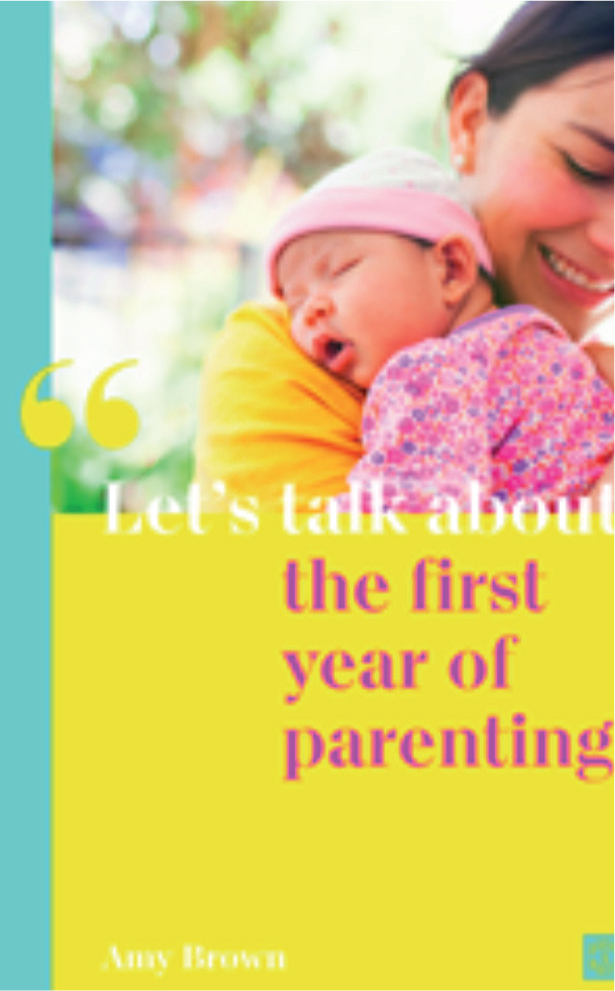
In 2017, a University of Swansea study that looked at infant parenting books that promote strict routines found that a large majority of mothers with an infant aged 0–12 months found them unhelpful and reported stress, anxiety and even depressive symptoms. One of the study's authors was Amy Brown, a researcher in maternal and infant health and the author of the book Lets talk about the first year of parenting. Reading this book, it is obvious Professor Brown used the study to inform its content. This book is, at its heart, an owner's manual for carers of babies in their first year of life. The aim is to impart, in bitesize chunks, relevant and useful advice to parents, without overwhelming readers with facts and instructions. Most importantly, it provides evidence-based information and advice that does not pressure parents who may already be struggling with the reality of life with an infant.
The book states it is aimed at any parent, ‘biological, adoptive, foster, step or any other type of parent’ and that ‘it is for heterosexual and same sex couples, single parents, separated parents’. However, the main focus is on mothers. There is a small chapter on same-sex couples, but as there has been little research into LGBTQ+ parenting, this mostly looks at ways for these parents to get support.
The layout is attractive, with short sections that can be read in small snippets, which enhances its appeal. These sections are interspersed with highlighted input from relevant contributors qualified to add to the conversation around the subject of a chapter. There are no illustrations, save headshots of contributors, but the use of coloured borders adds visual attractiveness to the layout.
Coming from an academic background and evidencing much of the content, it may have been easy for this book to be dry and heavy but the author has kept the language conversational and occasionally humorous adding to the accessibility of the writing. Further reading suggestions are provided at the end of many topics; however, this work is quite capable of becoming a standalone essential reference book that parents, especially mothers, will return to again and again.
Let's talk about the first year of parenting covers everything carers need to know. However, unlike most texts aimed at new parents, there are chapters about self care and postnatal mental health as well as about baby care. Amy Brown is a campaigner for support for women who wish to breastfeed and her passion for championing women is evident throughout. The first chapter is about support and this thread runs through the book. The author highlights the importance of seeking appropriate support and signposts the reader to relevant resources. Many of these resources are online and easily accessible to an overwhelmed mum with a smartphone in hand.
Other topics covered include parenting roles, returning to work, money and the postnatal body. Each subject is covered in a factual and helpful way. Expectations are managed and myths debunked. This is a book that makes parents feel good about themselves and encourages them to focus on themselves and avoid the pitfall of comparing their new family with others, which often leaves mothers feeling inadequate.
The strength of this book is the informative, non-judgemental, factual and supportive nature of the writing. Parents will open this book and see themselves, with all their insecurities and worries about their new post-baby life, reflected there as normal, typical and common reactions to a changing and challenging situation.
I cannot think of a relevant topic or issue that is not covered by this book. Midwives and other health professionals will find this a valuable resource that they can confidently recommend to pregnant and newly delivered women and their families. I would recommend that mothers read this invaluable tool before birth, when they have both the time and energy.


